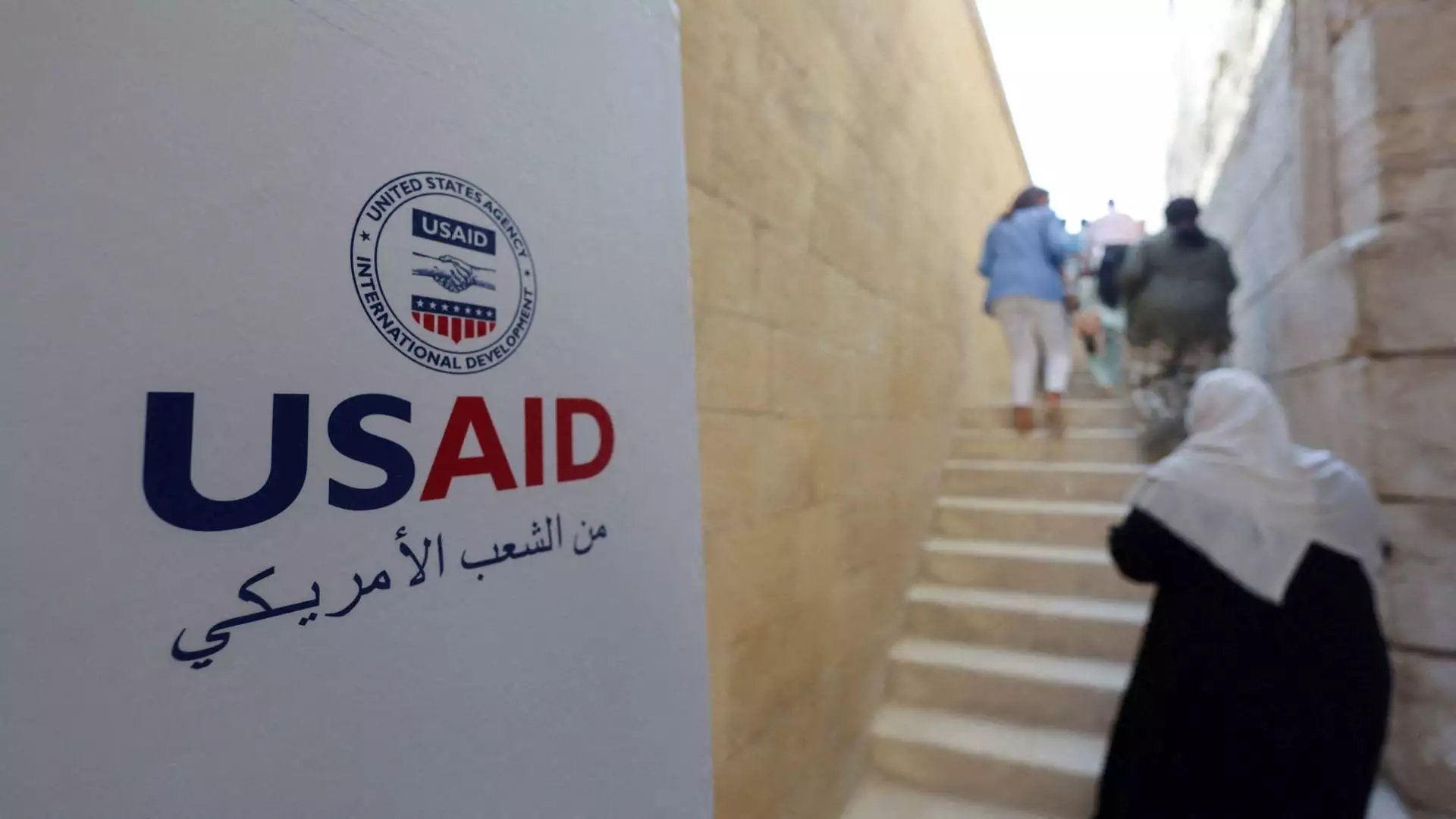The United States Agency for International Development (USAID) has recently found itself embroiled in a troubling situation that raises questions about governance, security, and inter-agency relations. On a seemingly typical Saturday, the agency’s director of security, John Voorhees, along with his deputy, Brian McGill, was placed on administrative leave following a scandal involving the Department of Government Efficiency (DOGE). This incident not only reflects the precarious environment within USAID but also highlights the growing tensions between governmental bodies and external influences.
Reports indicate that DOGE employees attempted to access secure USAID systems, including sensitive personnel files and classified security data. This incursion of personnel into systems deemed too sensitive for their clearance levels raises a red flag about operational protocols at both USAID and DOGE. While Katie Miller, associated with DOGE, claimed that no classified materials were accessed improperly, the very nature of their attempts calls into question the rigorousness of existing security measures. The unauthorized pursuit of classified information could have jeopardized the integrity of not only USAID’s operations but also the safety and privacy of its personnel.
The Fallout: Escalating Tensions and Political Maneuvering
The conflict escalated when DOGE employees threatened to involve U.S. Marshals if access was denied. Such threats signal a significant breakdown in civil dialogue and cooperation between agencies that are traditionally expected to work alongside each other. The tensions were further exacerbated by public statements from DOGE co-head Elon Musk, who publicly condemned USAID as a “criminal organization” on social media, a charge he made without presenting any evidence. These accusations serve to dilute the image of a structured and professional government and imply an atmosphere of hostility and opposition which could hinder effective collaboration on international aid efforts.
The Bigger Picture: Executive Branch Overreach
In the background of this turmoil, former Trump administration officials have begun discussions about subordinating USAID under the State Department’s authority. This suggestion raises substantial concerns about the possible legal implications of such a move. Democrats and legal scholars have called this plan into question, noting that it could violate longstanding congressional laws that established USAID as an independent agency. This prospective shift not only threatens status quo but underscores a concerning trend of executive overreach, raising alarms about political motivations potentially overshadowing the agency’s mission to promote global humanitarian efforts.
The fallout from this turmoil has been markedly detrimental to USAID’s workforce. Reports indicate that over a thousand employees and contractors have faced termination or furloughs in the wake of an almost total suspension of U.S. global assistance initiatives. Particularly alarming is the situation within the Bureau for Legislative and Public Affairs, where the majority of staff were placed on administrative leave almost simultaneously. The abrupt changes have left many in the agency feeling unsafe and uncertain about their future, leading to a climate of fear—particularly after Musk’s incendiary comments were made public.
An Agency in Limbo
As the agency’s website experienced outages and fears grew among employees about escalating instability in their work environment, the broader implications of this crisis became undeniable. Reports from insiders highlight a nervous atmosphere within the Ronald Reagan Building, where USAID is headquartered. The formal management failure evident in this saga not only undermines agency morale but also threatens the legacy and effectiveness of U.S. international aid efforts. The concerted attempts to undermine independent agencies like USAID pose risks that expand beyond bureaucratic disagreements, potentially jeopardizing global humanitarian operations that rely on U.S. support.
The recent upheaval at USAID signifies an alarming departure from norms of governance and inter-agency collaboration. As the agency navigates the political turbulence and security challenges brought to light by the DOGE incident, observers must consider the future implications for U.S. foreign aid strategy. Whether through legislative action, advocacy for transparency, or internal reform, the onus will fall on leaders within the government to restore stability and public faith in USAID’s mission for effective global assistance. Without such changes, the essential work of humanitarian support abroad could suffer debilitating consequences.


Leave a Reply